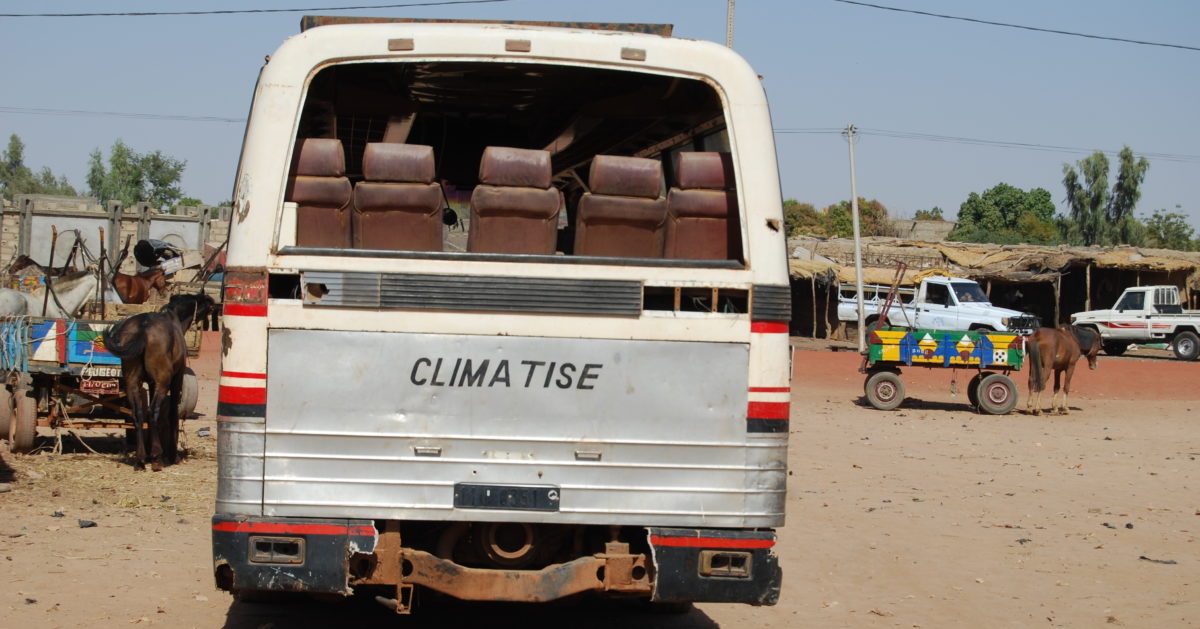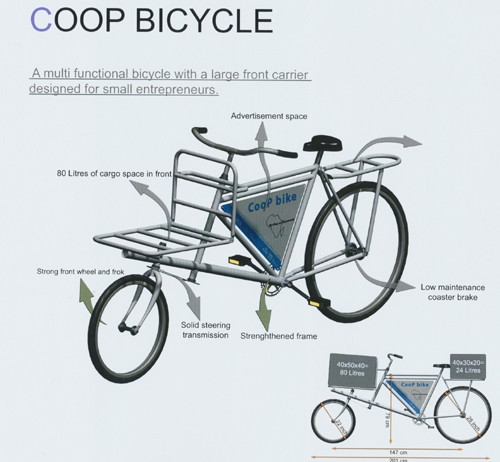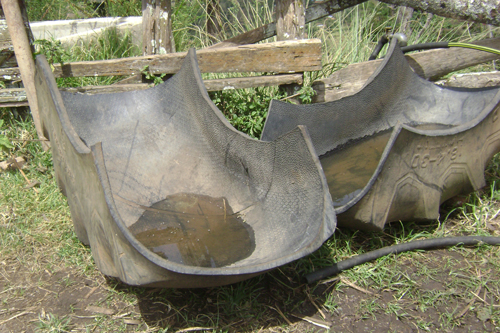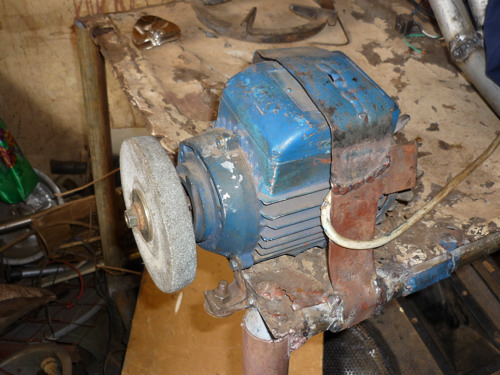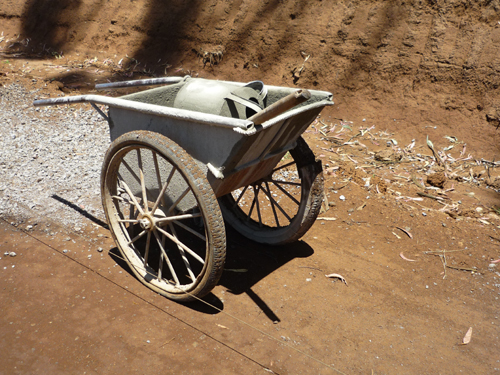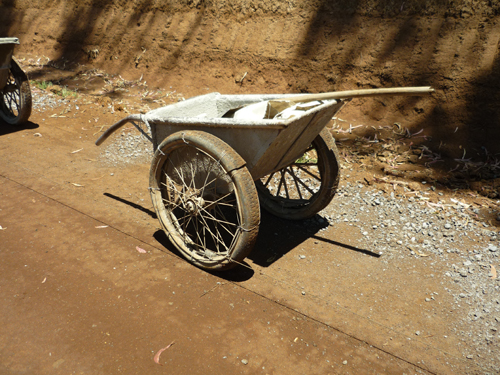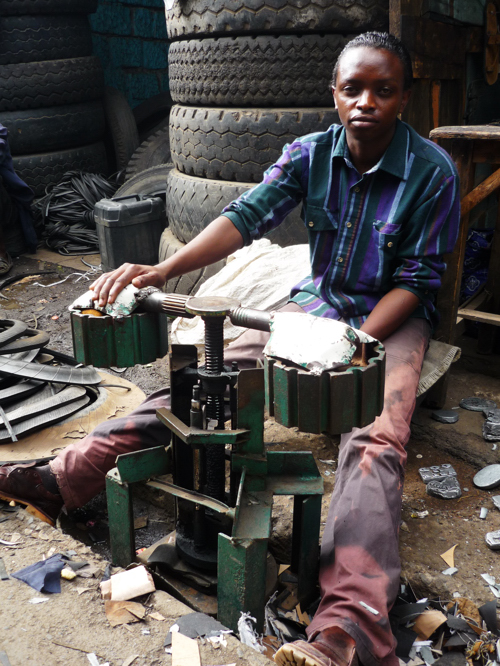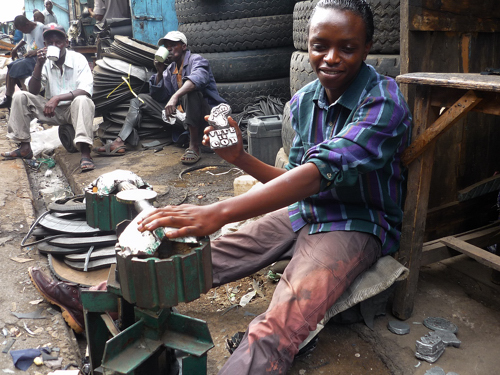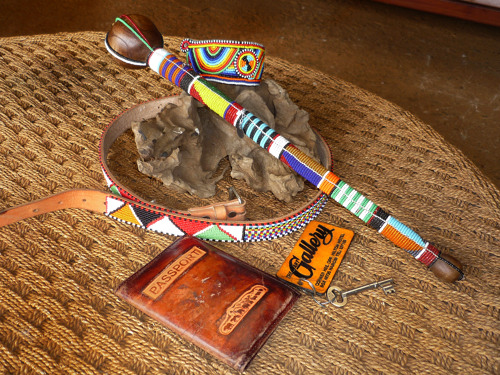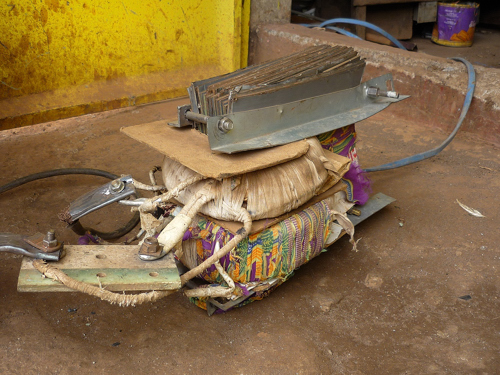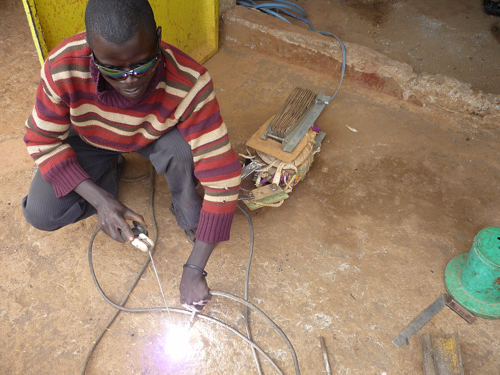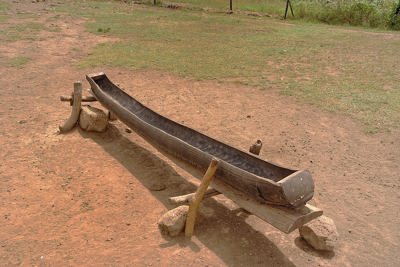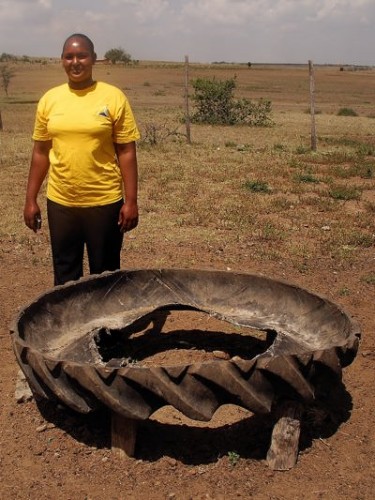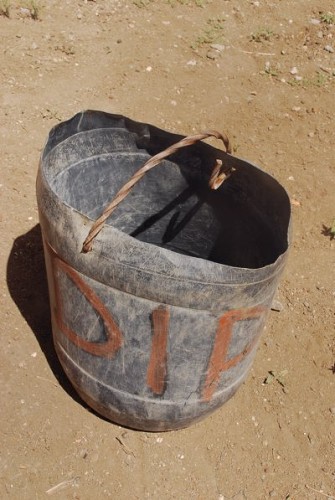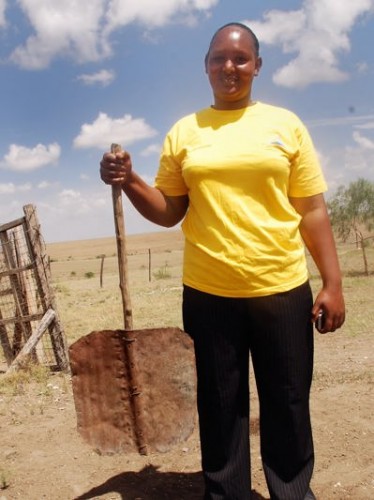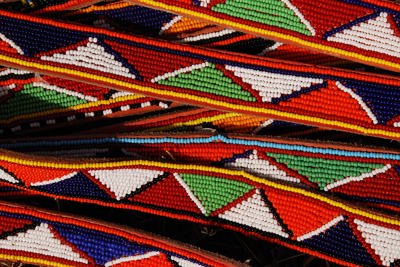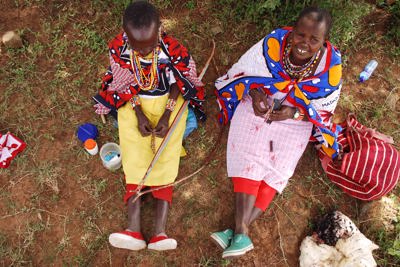My good friend Jagi Gakunju who runs the Kenyan environmental cyclists club Uvumbuzi club told me about this project which immediately caught my attention. It’s a collaboration with Africans and a Dutch organization.
You can read all about Cycling Blue in Kisumu on their Cycling Blue blog
The Cycling Blue Kenya workshop is providing courses, micro credit for (modified) bicycles and creating of employment, it is aimed to reduce poverty. In the workshop bicycles will be modified to create bicycle carts (for instance bicycle ambulances) for sale. Who buys them? Garbage collectors, local entrepreneurs who want a (modified) bicycle to generate income such as the Cool coolbox, bicycles with extended carriers for transport of cabbages.
Here’s what they are cooking at the moment in Kisumu
The idea that bicycles in Africa get modified and adapted for local uses is definitely 100% afrigadget.
Check out the brilliant Cycling out of poverty website here for more photos and videos. For more information Luuk Eickmans
Cycling out of poverty
info@cyclingoutofpoverty.com
http://www.cyclingoutofpoverty.com
0031-(0)615895529
SNS-bank 90.61.46.356
If you and your family want a great weekend out on bikes, join the Uvumbuzi cycling club here

